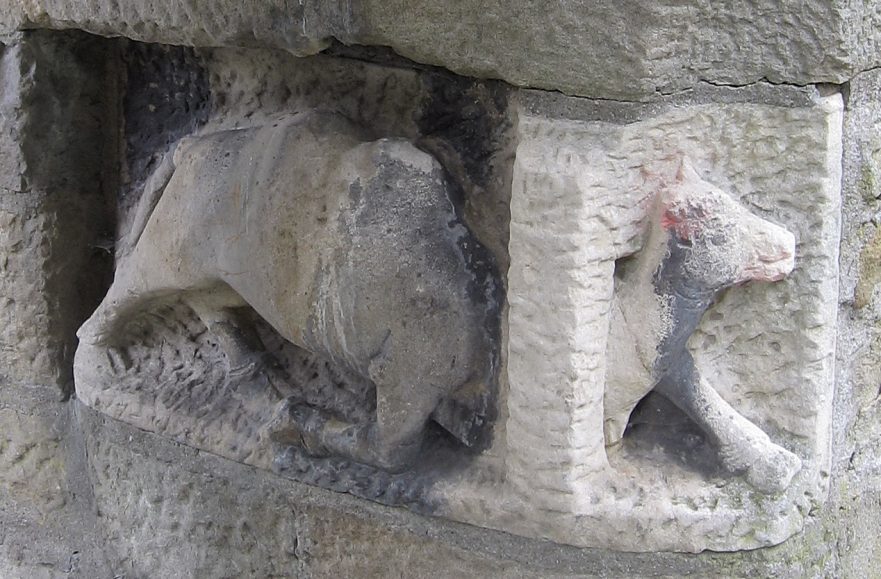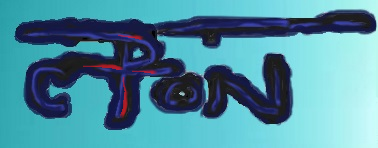Revised: 22 July 2022
The story of a rich man who declined Jesus’ invitation to become one of his disciples (Luke 18:18-30 and parallels) is perhaps only one segment of a much longer story. Robert L. Lindsey suggested that the rich man story was continued by two additional passages: Luke 14:25-33 and Matthew 13:44-46. If Lindsey’s supposition is correct, the Rich Man Declines the Kingdom of Heaven episode is the opening incident in a story that originally included the sayings about the difficult Demands of Discipleship (Luke 14:25-27, 33) and the Hidden Treasure and Priceless Pearl parables (Matt. 13:44-46).
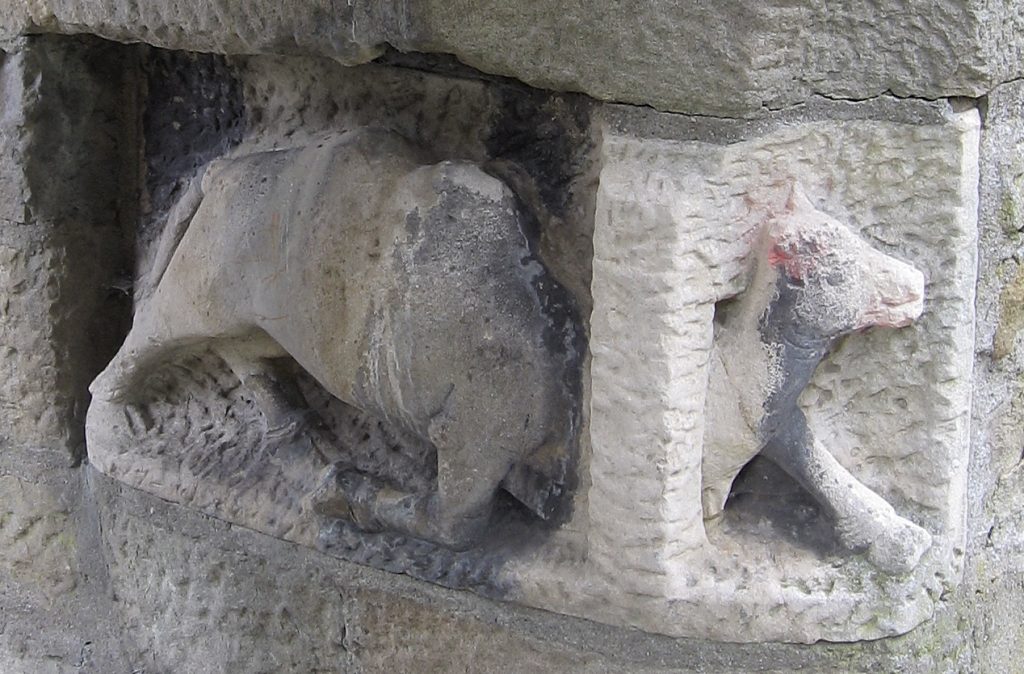
.
Click on the following titles to view the Reconstruction and Commentary for each pericope in the “Cost of Entering the Kingdom of Heaven” complex.
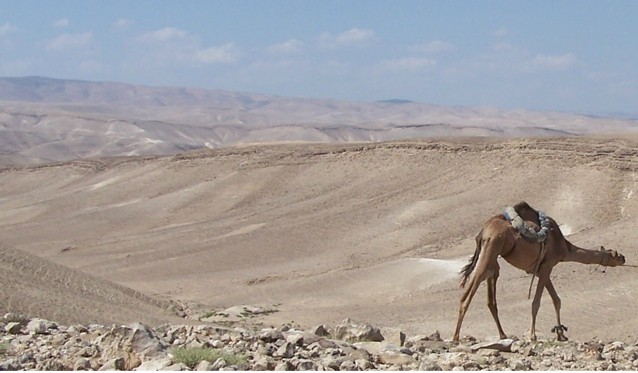 Rich Man Declines the Kingdom of Heaven
Rich Man Declines the Kingdom of Heaven
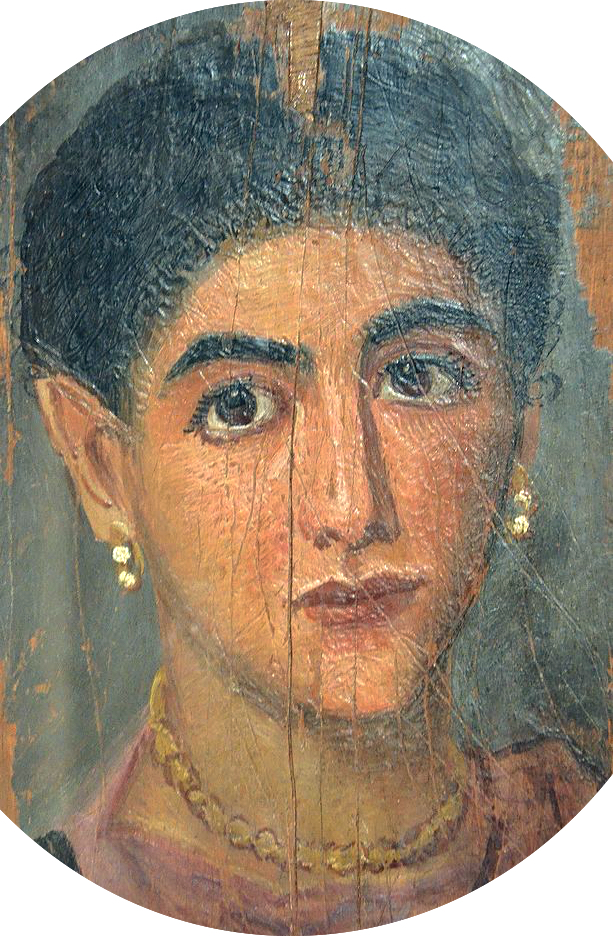 Hidden Treasure and Priceless Pearl Parables
Hidden Treasure and Priceless Pearl Parables
To test how well the parts of the conjectured “Cost of Entering the Kingdom of Heaven” complex “hang together,” read the entire story with the aid of our paraphrase of the Hebrew reconstruction. For our Greek and Hebrew reconstructions, see below.
[A man approached Yeshua and questioned him as follows:] “Teacher, what ‘good’ can I do to obtain eternal life?”Yeshua replied: “Why do you refer to a deed as ‘good’? Call only one thing ‘good’—the Torah. You know how to obtain eternal life: keep the commandments—‘Do not commit adultery,’ ‘Do not murder,’ ‘Do not steal,’ ‘Do not give false testimony….’”
“All these I have kept since I was a child,” the man interrupted.
At that, Yeshua said: “There is something more you should do: Give away all your wealth to charity—you will have heavenly wealth—and become my disciple.”
The man’s face fell—he was very wealthy.
When Yeshua saw that, he said: “How difficult it is for someone who is rich to join my band of disciples; it is easier for a camel to pass through a needle’s eye.”
The disciples heard what Yeshua said, and Petros exclaimed: “Look at us, we have left everything to become your disciples!”
“You have done the right thing,” Yeshua replied. “I promise you that all who have left family, livelihood and possessions to join my band of disciples will in this life get much, much more than what they have given up, and in the life after death, eternal life.
“Anyone who comes to join my band of followers but puts family ties or love of self ahead of me cannot possibly be my full-time disciple. Anyone who is not prepared to die cannot possibly be my full-time disciple. Anyone who does not renounce his possessions cannot possibly be my full-time disciple.”
Then Yeshua told them this parable: “What comparison can I make to illustrate the worth of belonging to my band of disciples? It’s like a man who stumbled upon buried treasure in a field. What did he do? He reburied it, and in his excitement he sold everything he owned to get enough money to buy the field and obtain the treasure.”
He said once more, “What other comparison can I make to illustrate the worth of belonging to my band of disciples? It’s like a merchant who spent his life buying and selling rare pearls. What did he do when he chanced upon a priceless pearl? He went and sold everything he owned to get enough money to buy it.”
Greek Reconstruction:
[καὶ ἰδοὺ ἄνθρωπος εἷς προσελθὼν αὐτῷ καὶ ἐπηρώτησέν αὐτὸν λέγων] διδάσκαλε τί ἀγαθὸν ποιήσας ζωὴν αἰώνιον κληρονομήσω εἶπεν δὲ αὐτῷ ὁ Ἰησοῦς τί λέγεις ἀγαθόν οὐδεὶς ἀγαθὸς εἰ μὴ εἷς τὰς ἐντολὰς οἶδας μὴ μοιχεύσῃς μὴ φονεύσῃς μὴ κλέψῃς μὴ ψευδομαρτυρήσῃς ὁ δὲ εἶπεν ταῦτα πάντα ἐφύλαξα ἐκ νεότητός μου ἀκούσας δὲ ὁ Ἰησοῦς καὶ εἶπεν αὐτῷ ἔτι ἕν σοι λείπει πάντα ὅσα ἔχεις πώλησον καὶ δὸς τοῖς πτωχοῖς καὶ ἕξεις θησαυρὸν ἐν τοῖς οὐρανοῖς καὶ δεῦρο ἀκολούθει μοι ἀκούσας δὲ τὸν λόγον τοῦτον ἀπῆλθεν λυπούμενος ἦν γὰρ πλούσιος σφόδρα ἰδὼν δὲ αὐτὸν Ἰησοῦς εἶπεν πῶς δυσκόλως οἱ τὰ χρήματα ἔχοντες εἰσελθεῖν εἰς τὴν βασιλείαν τῶν οὐρανῶν εὐκοπώτερον γάρ ἐστιν κάμηλον διὰ τρήματος βελόνης εἰσελθεῖν ἢ πλούσιον εἰς τὴν βασιλείαν τῶν οὐρανῶν ἀκούσαντες δὲ οἱ μαθηταὶ αὐτοῦ εἶπεν Πέτρος ἰδοὺ ἡμεῖς ἀφήκαμεν πάντα καὶ ἠκολουθήσαμέν σοι ὁ δὲ εἶπεν αὐτοῖς ἀμήν λέγω ὑμῖν ὅτι πᾶς ὅστις ἀφῆκεν οἰκίαν ἕνεκεν τῆς βασιλείας τῶν οὐρανῶν λήμψεται πολλαπλασίονα ἐν τῷ καιρῷ τούτῳ καὶ ἐν τῷ αἰῶνι τῷ ἐρχομένῳ ζωὴν αἰώνιον
εἴ τις ἔρχεται πρός με καὶ οὐ μεισεῖ τὸν πατέρα αὐτοῦ καὶ τὴν μητέρα καὶ τὴν γυναῖκα καὶ τὰ τέκνα καὶ τοὺς ἀδελφοὺς καὶ τὰς ἀδελφὰς καὶ τὴν ψυχὴν ἑαυτοῦ οὐ δύναται εἶναί μαθητής μου ὅστις οὐ βαστάζει τὸν σταυρὸν αὐτοῦ καὶ ἀκολουθεῖ ὀπίσω μου οὐ δύναται εἶναί μαθητής μου ὅστις οὐκ ἀφίησι πᾶσιν τοῖς ὑπάρχουσιν αὐτοῦ οὐ δύναται εἶναί μαθητής μου
[εἶπεν δὲ πρὸς αὐτοὺς παραβολὴν λέγων] τίνι ὁμοιώσω τὴν βασιλεία τῶν οὐρανῶν ὁμοία ἐστὶν θησαυρῷ κεκρυμμένῳ ἐν τῷ ἀγρῷ ὃν εὑρὼν ἄνθρωπος ἔκρυψεν καὶ ἀπὸ τῆς χαρᾶς αὐτοῦ ἀπῆλθεν καὶ ἐπώλησεν πάντα ὅσα εἶχεν καὶ ἠγόρασεν τὸν ἀγρὸν ἐκεῖνον
καὶ πάλιν εἶπεν τίνι ὁμοιώσω τὴν βασιλεία τῶν οὐρανῶν ὁμοία ἐστὶν ἀνθρώπῳ ἐμπόρῳ ζητοῦντι καλοὺς μαργαρείτας εὑρὼν δὲ ἕνα πολύτειμον μαργαρείτην ἀπελθὼν πέπρακεν πάντα ὅσα εἶχεν καὶ ἠγόρασεν αὐτόν
Hebrew Reconstruction:
[וְהִנֵּה אָדָם אֶחָד קֹרֵב אֵלָיו וַיִּשְׁאָלֵהוּ לֵאמֹר] רַבִּי מַה טּוֹב אֶעֱשֶֹה וְחַיֵּי עוֹלָם אִירַשׁ וַיֹּאמֶר לוֹ יֵשׁוּעַ לָמָּה אַתָּה אוֹמֵר טוֹב אֵין טוֹב אֶלָּא אֶחָד אֶת הַמִּצְוֹת אַתָּה יָדַעְתָּ לֹא תִנְאַף לֹא תִרְצָח לֹא תִגְנֹב לֹא תַעֲנֶה עֵד שָׁקֶר וַיֹּאמֶר כָּל אֵלּוּ עָשִׂיתִי מִיַּלְדוּתִי וַיִּשְׁמַע יֵשׁוּעַ וַיֹּאמֶר לוֹ עוֹד אַחַת חֲסֵרָה לְךָ כָּל שֶׁיֵּשׁ לְךָ מְכֹר וְתִּתְּנוֹ לָעֲנִיִּים וִיהִי לְךָ אוֹצָר בַּשָּׁמָיִם וּבוֹא לֵךְ אַחֲרַי וַיִּשְׁמַע אֶת הַדָּבָר הַזֶּה וַיֵּלֶךְ וַיֵּעָצֵב כִּי הָיָה עָשִׁיר מְאֹד וַיַּרְא אֹתוֹ יֵשׁוּעַ וַיֹּאמֶר מַה קָשֶׁה לְאֵלּוּ שֶׁיֵּשׁ לָהֶם נְכָסִים לָבוֹא בְּמַלְכוּת שָׁמַיִם נוֹחַ לַגָּמָל לְהִכָּנֵס בַּחֲרִירָהּ שֶׁלְּמַחַט מִלֶּעָשִׁיר לָבוֹא בְּמַלְכוּת שָׁמַיִם וְיִשְׁמְעוּ תַלְמִידָיו וַיֹּאמֶר פֶּטְרוֹס הֲרֵי אָנוּ הִנַּחְנוּ אֶת הַכֹּל וְהָלַכְנוּ אַחֲרֶיךָ וַיֹּאמֶר לָהֶם אָמֵן אֲנִי אוֹמֵר לָכֶם כָּל שֶׁהִנִּיחַ בֵּיתוֹ לְשֵׁם מַלְכוּת שָׁמַיִם יְקַבֵּל כִּפְלַיִם בָּעוֹלָם הַזֶּה וּבָּעוֹלָם הַבָּא חַיֵּי עוֹלָם
מִי שֶׁבָּא אֵלַי וְאֵינוֹ שׂוֹנֵא אֶת אָבִיו וְאֶת אִמּוֹ וְאֶת אִשְׁתּוֹ וְאֶת יְלָדָיו וְאֶת אֶחָיו וְאֶת אַחְיוֹתָיו וְאַף אֶת נַפְשׁוֹ אֵינוֹ יָכוֹל לִהְיוֹת תַּלְמִידִי מִי שֶׁאֵינוֹ נוֹשֵׂא אֶת צְלוּבוֹ וּבָא אַחֲרַי אֵינוֹ יָכוֹל לִהְיוֹת תַּלְמִידִי מִי שֶׁאֵינוֹ מַנִּיחַ כָּל מַה שֶׁיֵשׁ לוֹ אֵינוֹ יָכוֹל לִהְיוֹת תַּלְמִידִי
[וַיִּמְשׁוֹל לָהֶם מָשָׁל לֵאמֹר] לְמַה אֲדַמֶּה מַלְכוּת שָׁמַיִם לְמַטְמוֹן בַּשָּׂדֶה שֶׁמָּצָא אָדָם וְטָמַן אֹתוֹ וּמִשִׂמְחָתוֹ הָלַךְ וּמָכַר כֹּל מַה שֶּׁהָיָה לוֹ וְלָקַח אֹתָהּ הַשָּׂדֶה
וְעוֹד אָמַר לְמַה אֲדַמֶּה מַלְכוּת שָׁמַיִם לְאִישׁ תַּגָּר הַמְּבַקֵּשׁ מַרְגָּלִיּוֹת טוֹבוֹת וּכְשֶׁמָּצָא מַרְגָּלִית אַחַת יְקָרָה הָלַךְ וּמָכַר כֹּל מַה שֶּׁהָיָה לוֹ וְלָקַח אוֹתָהּ
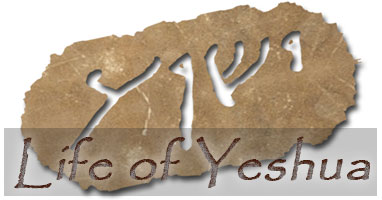 Click here to return to The Life of Yeshua: A Suggested Reconstruction main page.
_______________________________________________________
Click here to return to The Life of Yeshua: A Suggested Reconstruction main page.
_______________________________________________________

